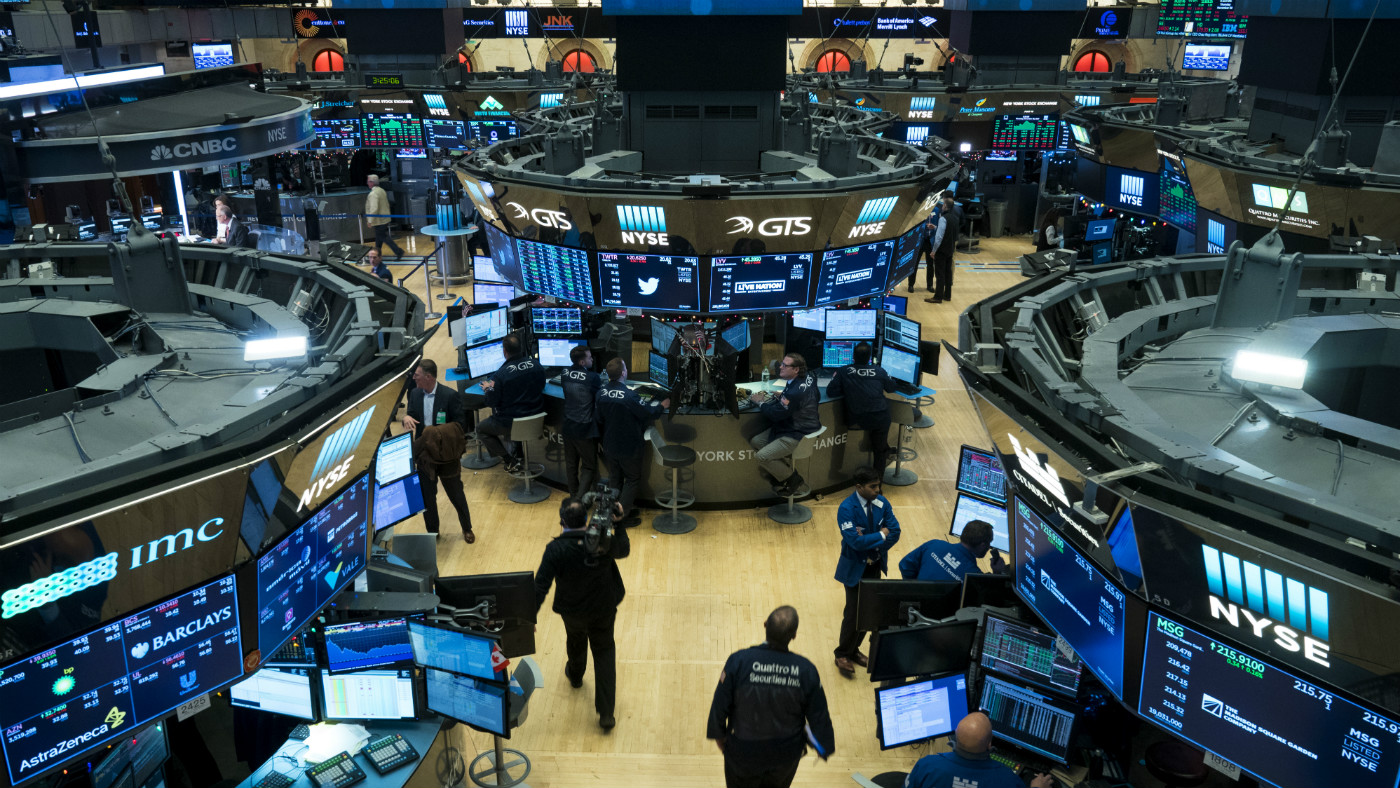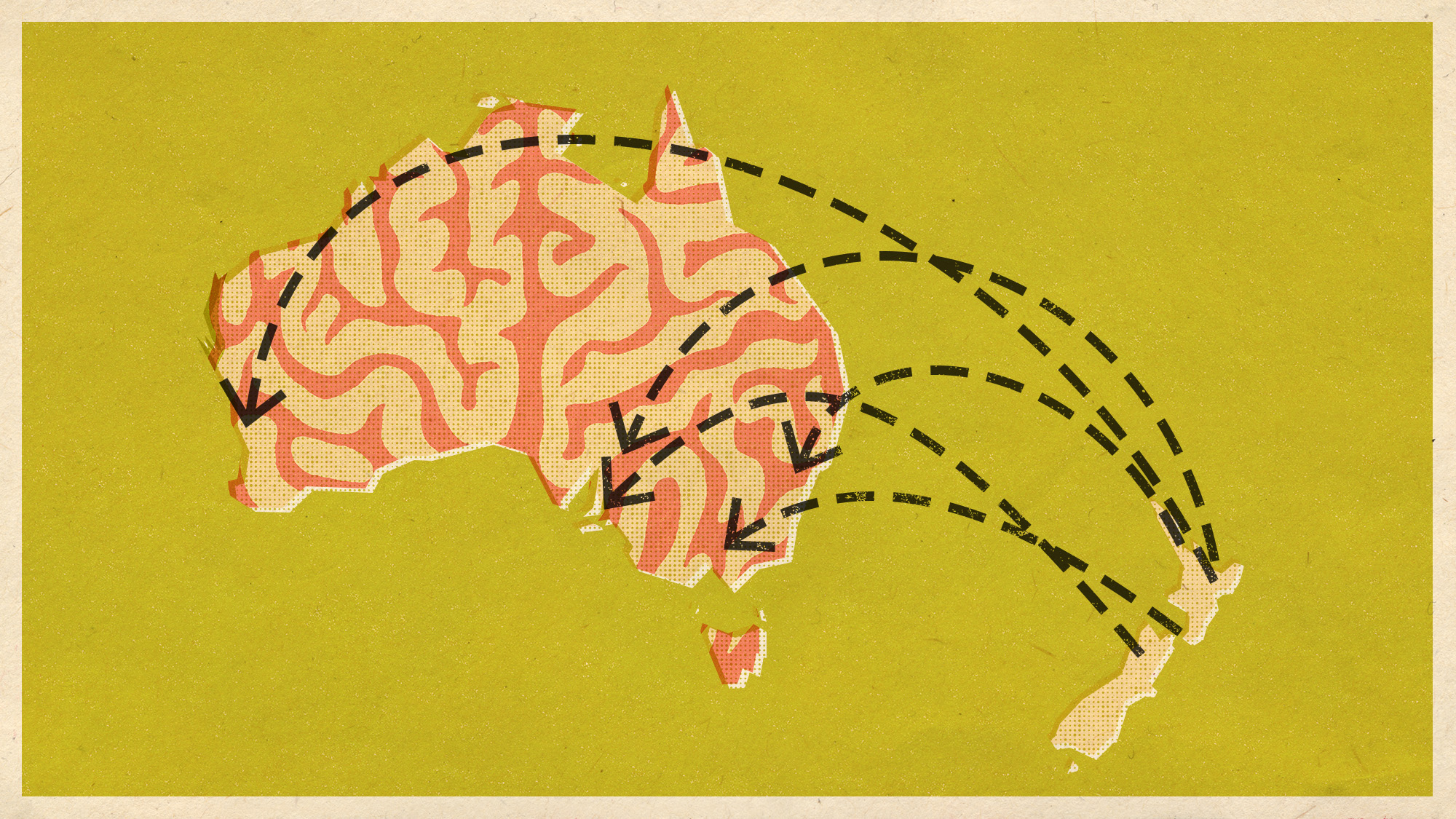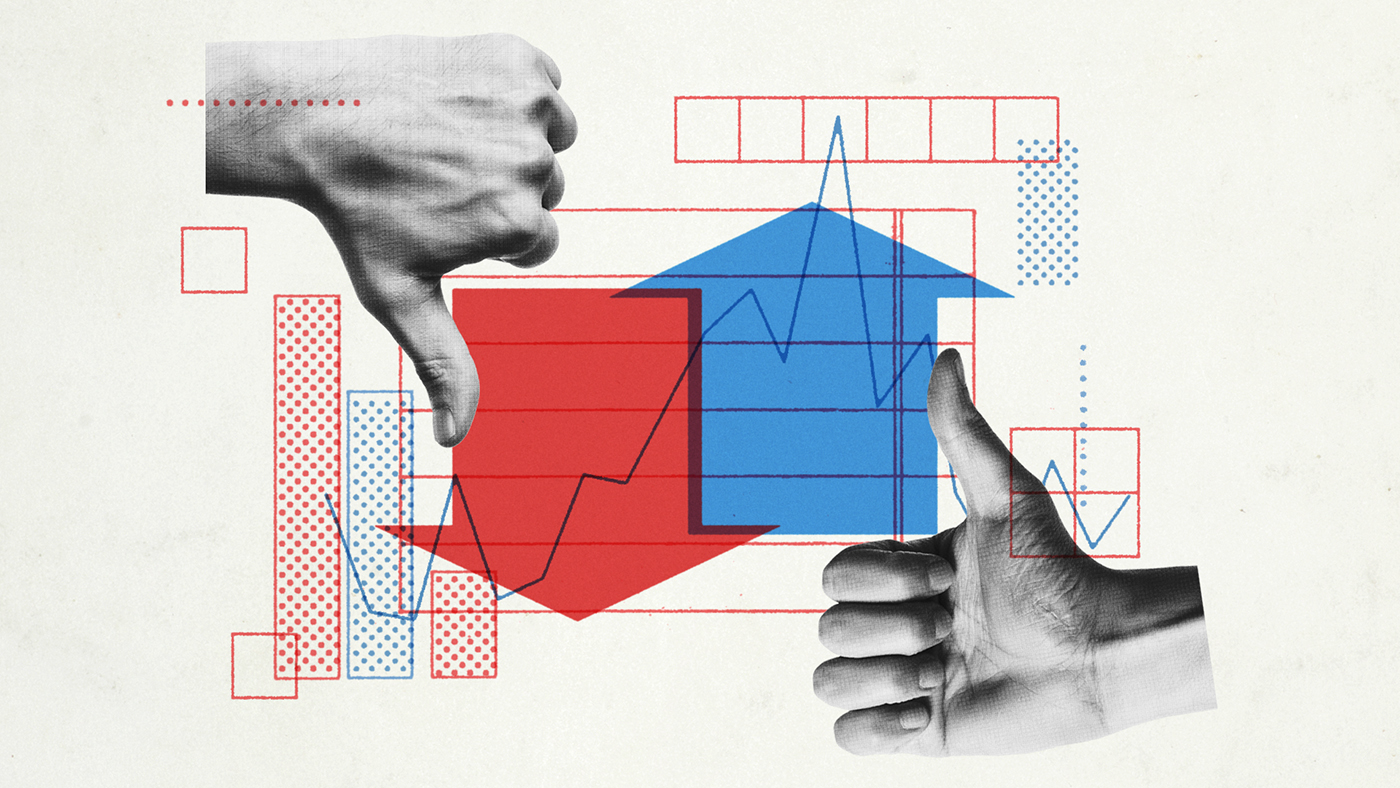Global markets plunge as investors fear ‘cataclysmic recession’
Wall Street suffers worst day since 1987 despite efforts to steady financial markets

A free daily email with the biggest news stories of the day – and the best features from TheWeek.com
You are now subscribed
Your newsletter sign-up was successful
Stock markets sunk yesterday despite central banks announcing a co-ordinated effort to ease the effects of the coronavirus.
London’s FTSE 100 index dropped more than 4%, with other major European markets also suffering declines.
On Wall Street, US markets plunged more than 7%, prompting an automatic suspension of trade in the minute after markets opened.
The Week
Escape your echo chamber. Get the facts behind the news, plus analysis from multiple perspectives.

Sign up for The Week's Free Newsletters
From our morning news briefing to a weekly Good News Newsletter, get the best of The Week delivered directly to your inbox.
From our morning news briefing to a weekly Good News Newsletter, get the best of The Week delivered directly to your inbox.
The Guardian reports that “mounting concerns over a possible global recession” triggered the falls, adding that they come “despite dramatic action taken by the US central bank”.
The Federal Reserve “slashed interest rates to near zero in an unprecedented attempt to shore up the US economy”, the paper says.
In what The New York Times describes as a series of “extraordinary steps”, the Fed also announced that it would expand its balance sheet by at least $700bn (£565bn) in the coming weeks to help stabilise market confidence.
Investors now fear that the global economy “could experience a downturn rivaling the cataclysmic recession after the financial crisis a decade ago”, the paper adds.
A free daily email with the biggest news stories of the day – and the best features from TheWeek.com
–––––––––––––––––––––––––––––––For a round-up of the most important business stories and tips for the week’s best shares - try The Week magazine. Get your first six issues for £6–––––––––––––––––––––––––––––––
Dharshini David, global trade correspondent for the BBC, writes: “Sunday’s extravaganza by the Fed showed how central banks can go big. But interest rate cuts are of limited use; they won't tempt customers to go out and spend in Marseille or New York when the bars are closed and flights cancelled.”
David Madden, a market analyst at CMC Markets, said that while central bankers were trying to calm the markets, “in reality it is having the opposite effect”.
“The radical measures have sent out a very worrying message to dealers, and that is why they are blindly dumping stocks.”
Paul Markham, global equities portfolio manager at the asset manager Newton Investment Management, said: “As the last few weeks have unfolded there has been a growing fear that the world faces a perfect storm. A strong nerve will be required and it may well get darker before we see the light.”
“Things are getting ugly,” added Neil Shearing, chief economist at the consultancy Capital Economics.
“History suggests that equity markets are only likely to bottom out when it becomes clear that the flow of new cases of the virus has peaked. Until this happens, we should expect stock markets to remain under pressure.”
-
 How Democrats are turning DOJ lemons into partisan lemonade
How Democrats are turning DOJ lemons into partisan lemonadeTODAY’S BIG QUESTION As the Trump administration continues to try — and fail — at indicting its political enemies, Democratic lawmakers have begun seizing the moment for themselves
-
 ICE’s new targets post-Minnesota retreat
ICE’s new targets post-Minnesota retreatIn the Spotlight Several cities are reportedly on ICE’s list for immigration crackdowns
-
 ‘Those rights don’t exist to protect criminals’
‘Those rights don’t exist to protect criminals’Instant Opinion Opinion, comment and editorials of the day
-
 What's Jeff Bezos' net worth?
What's Jeff Bezos' net worth?In Depth The Amazon tycoon and third richest person in the world made his fortune pioneering online retail
-
 'Brain drain' fear as record numbers leave New Zealand
'Brain drain' fear as record numbers leave New ZealandUnder The Radar Neighbouring Australia is luring young workers with prospect of better jobs
-
 Ghost kitchens are pulling a disappearing act
Ghost kitchens are pulling a disappearing actunder the radar The delivery-only trend is failing to live up to the hype built up during the pandemic
-
 The birth of the weekend: how workers won two days off
The birth of the weekend: how workers won two days offThe Explainer Since the 1960s, there has been talk of a four-day-week, and post-pandemic work patterns have strengthened those calls
-
 Why household wealth took off during the pandemic
Why household wealth took off during the pandemicUnder The Radar The Covid-19 pandemic caused a lot of pain and hardship, but new research shows it also left most Americans wealthier
-
 Empty office buildings are blank slates to improve cities
Empty office buildings are blank slates to improve citiesSpeed Read The pandemic kept people home and now city buildings are vacant
-
 Inflation vs. deflation: which is worse for national economies?
Inflation vs. deflation: which is worse for national economies?Today's Big Question Lower prices may be good news for households but prolonged deflation is ‘terrible for the economy’
-
 America's 'cataclysmic' drop in college enrollment
America's 'cataclysmic' drop in college enrollmentToday's Big Question "The slide in the college-going rate since 2018 is the steepest on record"